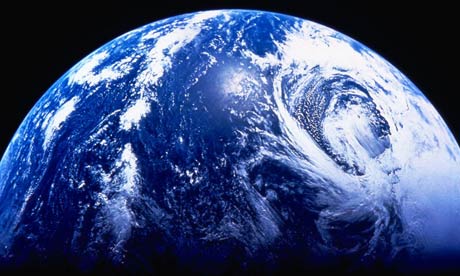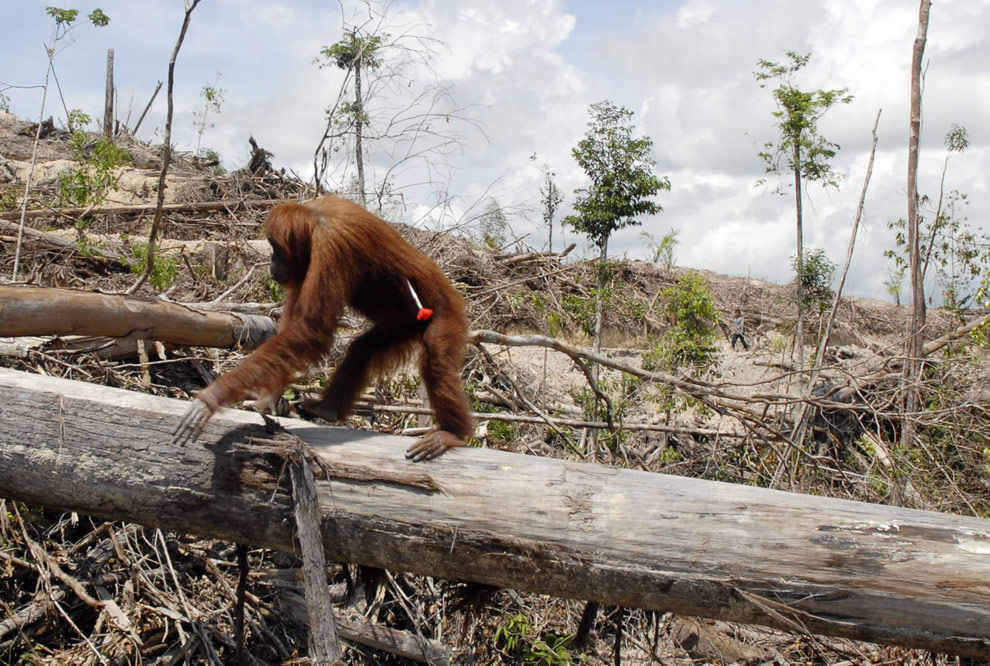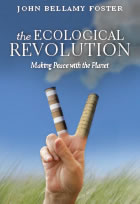climate change
Australia: Global warming and the ‘Big Dry’— What prospects for the Murray-Darling river system?

By Renfrey Clarke
July 20, 2009 -- From desert-fringe villages and drowning atolls, global warming is predicted before long to set climate refugees on the move. But arguably, the first climate refugees to reach Australia’s major cities are arriving already. And the places from which they have come are not exotic — rural towns like Mildura, Renmark and Griffith in Australia’s south-east.
In settlements throughout the Murray-Darling, residents are quietly deciding the irrigation-based economy has no future. For many orchardists and viticulturalists, allocations of water in recent years have been too low to keep plantings alive.
When barely a trickle is coming down the rivers, farmers are concluding it’s best to sell the next-to-meaningless water rights, accept a government exit package, bulldoze the trees and vines, and walk away.
Unprecedented drought
COSATU: Working-class internationalism in the era of deepening global economic crisis

Declaration of the Congress of South African Trade Unions International Solidarity Conference, Johannesburg, June 24-26, 2009.
COSATU -- Gathered at this historic International Solidarity Conference of COSATU are workers, activists and internationalists committed to a new and just world order, free from poverty, hunger and injustice. We have concluded two days of intensive engagements, critical reflections and dedicated work to assess and ascertain the revolutionary mood of workers and the poor masses of the world, the ebbs and flows of the global class struggle and the state of readiness by working-class forces and their organisations to wage a decisive battle for the new and just global economic system.
Free downloads (PDF: requires Adobe Reader)
“Essential reading for everyone who is serious about confronting the climate emergency.” — Emma Murphy, co-editor, Green Left Weekly
Class struggle and ecology: An ecosocialist approach

By Socialist Resistance (Britain)
Can carbon trading save our forests?

By Susan Austin
June 26, 2009 – Hobart, Tasmania -- Along with over 400 other people, I turned up to the Wrest Point Casino here to attend the premiere of The Burning Season on June 1. I had the film’s headline -- “As inspiring as The Inconvenient Truth was frightening” in the back of my mind, hoping for a good news story. Instead I sat through a well-orchestrated promo for a carbon trading company, set up by a young Australian-based millionaire whose message was that it is possible to make money and save the environment at the same time.By setting up a carbon trading company called Carbon Conservation, and brokering high-level deals between big banks and provincial Indonesian governors, the film’s “star”, young entrepreneur Dorjee Sun, was able to secure the protection of large areas of forests that may otherwise have been logged or burnt.
Biofuels and sustainable transport -- Can biofuels be produced and used responsibly?

By Renfrey Clarke
June 16, 2009 -- For governments and vehicle corporations, the charm of biofuels used to be the promise they held out of a ready-made solution to transport-related greenhouse gas emissions -- a solution that might simply be dropped in, while changing almost nothing else. Freeways, suburban sprawl, four-wheel-drive family cars -- everything could remain. Only the fuel on sale at service stations would be different.
Biofuels, the promise to the public ran, would be ``clean and green’’, an environmental zero-sum. Although carbon was released to the atmosphere when biofuels were burnt, this was carbon that had been there earlier, before being taken up by the plants from which the fuels were derived.
Free downloads (PDF: requires Adobe Reader)
“Essential reading for everyone who is serious about confronting the climate emergency.” — Emma Murphy, co-editor, Green Left Weekly

By Rick Wolff
June 5, 2009 -- The greatest tragedies among many in the collapse and bankruptcy of General Motors (GM) concern what is not happening. There are those solutions to GM's problems not being considered by Obama's administration. There are the solutions not being demanded by the United Auto Workers Union (UAW). There are all the solutions not even being discussed by most left commentators on the disaster. Finally there are crucial aspects of GM's demise not getting the attention they deserve.
What’s wrong with a 30-hour work week?

By Don Fitz
May 30, 2009 -- With millions of jobs lost during the first part of 2009, who is calling for a shorter work week to spread the work around? Not the Republicans. Not even the Democrats. But why is there nary a peep from unions?
In the US, the vehicle industry sets the pace for organised labour. The only discussion at the top levels of the United Auto Workers Union (UAW) is how quickly the gains won during the last 50 years can be given back. Does the UAW have no memory of the 1930s and 1940s when a shorter work week was at centre of organising demands?
The gross domestic product is plummeting at the same time that jobs are disappearing. Why should there be any connection between the two? If society produces 10% less, why don’t we all just work 10% less? Didn’t things work like that for hundreds of thousands of years of human existence? When people figured out easier ways to get what they needed, they spent less time doing it.
Ten reasons why population control is not an answer to climate change

By Simon Butler
June 1, 2009 -- Climate change is the greatest challenge humanity has ever faced. The scientific evidence of the scale of the threat is overwhelming, compelling and frightening. Climate tipping points -- points which if crossed will lead to runaway global warming -- are being crossed now.
We live in a time of consequences. So it’s crucial that the climate justice movement -- made up of those determined to take a stand now to win a safe climate future -- campaigns for the changes that can actually make a difference.
A discussion has surfaced about whether population-control measures should be a key plank in the climate action movement’s campaign arsenal. Below are 10 reasons why such a decision would hinder, rather than help, the necessary task of building a movement that can win.
1. Population does not cause climate change
Advocates of population control say that one of the most effective measures we can take to combat climate change is to sharply reduce the number of humans on the planet. This wrongly focuses on treating one symptom of an irrational, polluting system rather than dealing with the root causes.

With the permission of John Bellamy Foster and Monthly Review Press, Links International Journal of Socialist Renewal is publishing an exclusive excerpt from Foster's latest book, The Ecological Revolution: Making Peace with the Planet.
Links readers are encouraged to purchase a copy of this important new book HERE.
The roots of the present ecological crisis, John Bellamy Foster argues in The Ecological Revolution, lie in capital’s rapacious expansion, which has now achieved unprecedented heights of irrationality across the globe. Foster compellingly demonstrates that the only possible answer for humanity is an ecological revolution: a struggle to make peace with the planet.
* * *
